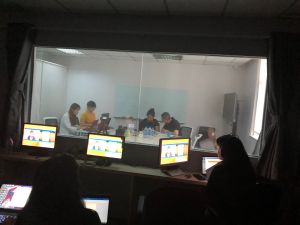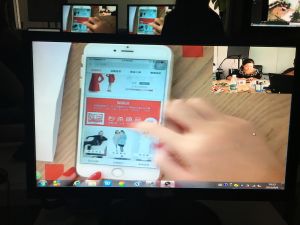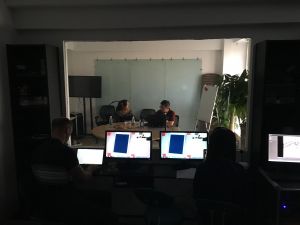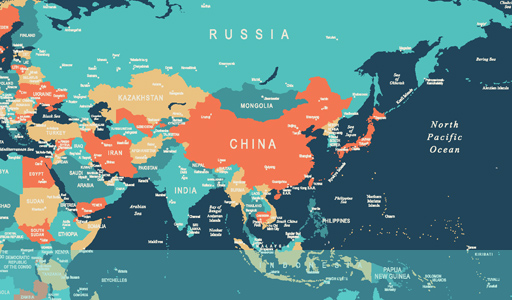Usability Testing in China
Remote or lab-based usability testing in China, with real customers and local, Senior UX Researchers
China is a vast market and for Western businesses thinking about organising UX research or usability testing with their clients, it can be a daunting prospect. That is where UX24/7 comes in. We are a global design research agency that operates with our own team of Senior UX Researchers. All our Senior UX Researchers have been evaluated as part of their joining process to ensure they have the skills, capabilities and experience to deliver usability testing and UX Research to the high standards we expect. A good example of this is our Chinese team who is lead by a Senior UX Researcher with nearly 20 years practical and hands on experience.
Remote and lab-based usability testing in China
We run usability testing and UX Research in China using remote and lab-based facilities. Remote methodologies use online screen sharing technologies. We use specific tools that work in China but that can also provide a viewing experience to our clients remotely, if they are unable to travel. This is important because services like Zoom do not work effectively behind the great “firewall” of China!
For lab based testing we recognise that our customers don’t necessarily want to be tied to Beijing or Shanghai. China is a big place and cities outside of Beijing like Shanghai, Guangzhou, Shenzhen, Chongqing and Wuhan each have populations of nearly 10 million people. We therefore use facilities where our clients want the research to take place and have various advanced testing kits that work in the various different facility set ups we utilise.
In all case we provide a viewing experience that includes picture-in-picture video and where required, simultaneous translation into whatever your native language is. Recordings of the sessions are also provided with your local language as well as with the Chinese original.
Finally, our Senior UX Researchers provide a detailed analysis from the session. Our deliverables include observations and issues together with analysis and actionable recommendations. Our team also speak English so we are able to deliver a playback session with you either in Chinese or English.
So, what are you waiting for? If you want to conduct usability testing in China, we can help.
As this was our first time user-testing in China – UX24/7 demonstrated they had both experience and contacts on the ground. They delivered a project that exceeded our expectations
Mark Batty, Head of International Development, Boden
Pictures from the lab when usability testing in China



Quick facts about China:
- Main language/s spoken: Mandarin and Cantonese
- Population: 1,355,692,576
- Capital City: Beijing
- Secondary Cities: Shanghai; Guangzhou; Shenzhen; Chongqing; Wuhan
- Currency / monetary units used: Yuan/Renminbi
- Literacy: 95.1% (2010 est.)

UX Research and Usability Testing in China
Participants in China tend not to openly disagree or criticize, so rephrasing questions away from the black and white of “what didn’t you like?” towards the area of “how would this better suit your needs?” is advised when moderating.
Participants are often keen to please, meaning results should be treated accordingly.
There are seven main dialects spoken in China, with Mandarin being the official language of the mainland and Taiwan, and Cantonese being the official language of Hong Kong. Make
sure your translator is fluent in the dialect of the region you are conducting research in.
Due to Hanzi – the method of writing – it is easier to read a lot more content in Chinese. Hence participants are accustomed to analysing a lot more information at a single glance.
Traffic in China can be notoriously chaotic, so ensure you give yourself plenty of time to reach your destination, particularly if conducting research in more than one location on a single day.
Chinese New Year is the major celebration and traditionally lasts for 16 days, beginning in either January or February, dependent upon when the new moon falls.
| 1st January | New Year’s Day |
| 1st day of 1st Lunisolar month | Chinese New Year (3-days) |
| 4th, 5th or 6th April | Tomb Sweeping Day |
| 1st May | Labour Day |
| 5th day of 5th Lunisolar month | Dragon Boat Festival |
| 15th day of 8th Lunisolar month | Mid-Autumn Festival |
| 1st October | National Day |
Case study: Usability Testing in China for Boden
China is just one of the markets where we organise and deliver international user experience research and usability testing. If you have a requirement in China or any other market please get in touch using the form below and we will be happy to provide a no obligation quotation.




